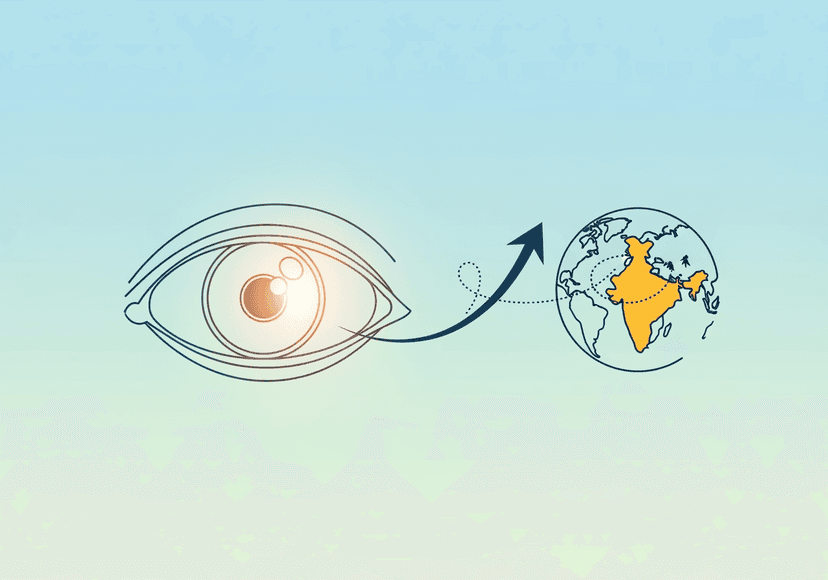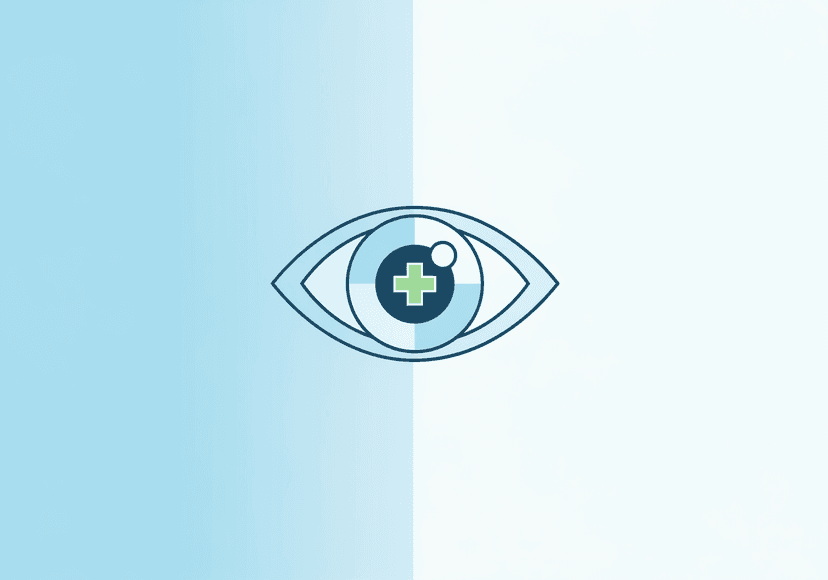
Why Combine Ayurveda with Modern Medicine in India – 2025 Insights
10 Jul, 2025
 Healthtrip
Healthtrip- Why Integrate Ayurveda and Modern Medicine in India? - The 2025 Imperative
- Where is this Integration Happening? - Key Regions and Institutions
- How Can Ayurveda and Modern Medicine Be Combined? - Practical Approaches
- Who Benefits from Combined Therapies? - Target Patient Groups < li>Success Stories: Examples of Integrated Treatment in India - 2025
- Challenges and Opportunities in Integration
- Conclusion: The Future of Healthcare in India - A Synergistic Approach
Why the Time is Ripe for Integration
The healthcare landscape is evolving, and patients are increasingly seeking a more holistic, personalized approach to their well-being. People aren't just looking to treat symptoms; they want to understand the root cause of their health issues and achieve lasting wellness. Modern medicine excels at addressing acute conditions and providing immediate relief, but it sometimes falls short on preventative care and managing chronic ailments. Ayurveda, on the other hand, shines in these areas, offering personalized dietary and lifestyle recommendations, herbal remedies, and therapies designed to restore balance and harmony. The demand for integrated healthcare is not just a trend; it's a reflection of a deeper desire for a system that treats the whole person – mind, body, and spirit. In 2025, this demand will be even more pronounced, with a greater emphasis on preventative care and personalized wellness strategies. Healthtrip recognizes this shift and is dedicated to curating a network of healthcare providers who understand the value of combining Ayurveda with modern medicine, making integrated care accessible and convenient for you.
Most popular procedures in India
The Benefits of Combining Ayurveda and Modern Medicine
Imagine a world where your doctor considers not only your blood test results but also your dosha – your unique Ayurvedic constitution. This is the power of integrated medicine. By combining the diagnostic capabilities of modern medicine with the personalized approach of Ayurveda, we can create treatment plans that are more effective and tailored to your individual needs. For example, someone undergoing cancer treatment at Fortis Memorial Research Institute, Gurgaon, could benefit from Ayurvedic therapies to manage side effects like nausea and fatigue, improving their quality of life during a challenging time. Or, someone with chronic pain could explore Ayurvedic lifestyle changes alongside conventional pain management techniques at Max Healthcare Saket for a more sustainable solution. The integration of these systems also promotes preventative care, empowering individuals to take control of their health and reduce their reliance on medication. Healthtrip is committed to connecting you with healthcare professionals who are skilled in both Ayurvedic and modern medical practices, offering you the best of both worlds on your journey to optimal health.
Addressing Challenges and Ensuring Safe Integration
Of course, integrating Ayurveda and modern medicine isn't without its challenges. One of the biggest hurdles is ensuring that treatments are safe and effective. It's crucial to have qualified practitioners who understand both systems and can make informed decisions about which therapies are appropriate for each patient. Imagine a scenario where someone is taking prescription medication and wants to incorporate Ayurvedic herbs; it's essential to ensure there are no potential interactions. Another challenge is standardization and quality control of Ayurvedic products. Not all herbal remedies are created equal, and it's important to source them from reputable suppliers. To address these challenges, Healthtrip is committed to partnering with reputable hospitals and clinics like Fortis Hospital, Noida that adhere to the highest standards of quality and safety, ensuring that you receive the best possible care. We also prioritize transparency, providing detailed information about the qualifications of the practitioners and the sourcing of Ayurvedic products, so you can make informed decisions about your health.
Wellness Treatments
Give yourself the time to relax
Lowest Prices Guaranteed!

Lowest Prices Guaranteed!
India 2025: A Vision for the Future of Healthcare
Looking ahead to 2025, we envision a future where integrated healthcare is the norm, not the exception. In this future, hospitals like Fortis Escorts Heart Institute routinely incorporate Ayurvedic principles into their cardiac rehabilitation programs, helping patients recover faster and prevent future heart problems. Medical schools will offer courses in Ayurveda, and Ayurvedic practitioners will receive training in modern medicine, fostering a deeper understanding and collaboration between the two systems. We also foresee a rise in telemedicine and remote monitoring, making integrated healthcare more accessible to people in rural areas. Healthtrip is committed to playing a key role in shaping this future, by providing a platform that connects patients with the best integrated healthcare providers in India and beyond. We believe that by embracing the wisdom of Ayurveda and the advancements of modern medicine, we can create a healthcare system that is truly holistic, personalized, and effective, empowering individuals to live healthier, happier lives.
Why Integrate Ayurveda and Modern Medicine in India? - The 2025 Imperative
India, a land steeped in ancient traditions and rapidly embracing modern advancements, stands at a unique crossroads in healthcare. For centuries, Ayurveda, the "science of life," has been a cornerstone of Indian wellness, offering holistic approaches to health and healing. Simultaneously, modern medicine, with its cutting-edge technologies and specialized treatments, has revolutionized healthcare outcomes globally. The question isn't whether one is superior to the other, but rather, how these two powerful systems can synergize to create a more comprehensive and effective healthcare model for the nation. The 2025 imperative arises from the urgent need to address the rising burden of chronic diseases, the limitations of relying solely on either system, and the immense potential to leverage the strengths of both for improved patient care. Imagine a scenario where a patient undergoing chemotherapy at Fortis Memorial Research Institute, Gurgaon (https://www.healthtrip.com/hospital/fortis-memorial-research-institute) also receives Ayurvedic therapies to manage side effects like nausea and fatigue, enhancing their quality of life during treatment. This is the kind of integrated approach that holds transformative promise. By integrating Ayurveda and modern medicine, India can foster a healthcare system that is not only more effective but also more accessible and culturally relevant to its diverse population.
The Growing Need for Holistic Healthcare
The increasing prevalence of chronic diseases such as diabetes, heart disease, and cancer necessitates a shift towards holistic healthcare models that address the root causes of illness and promote overall well-being. Modern medicine excels in diagnostics, surgical interventions, and acute care; however, it often falls short in addressing the lifestyle factors and underlying imbalances that contribute to chronic conditions. Ayurveda, on the other hand, emphasizes personalized treatment plans based on individual constitution (Prakriti) and lifestyle modifications tailored to restore balance (Dosha). Think of it like this: modern medicine can fix the broken car, but Ayurveda teaches you how to drive it safely and maintain it for a longer, healthier journey. An integrated approach allows for a more comprehensive management of chronic diseases, combining the diagnostic precision of modern medicine with the preventative and lifestyle-oriented strategies of Ayurveda. For instance, at Max Healthcare Saket (https://www.healthtrip.com/hospital/max-healthcare-saket), imagine patients with diabetes receiving conventional medication alongside Ayurvedic dietary and lifestyle recommendations to better manage their blood sugar levels and prevent complications. This synergy can lead to improved patient outcomes and a reduced reliance on long-term medication.
Bridging the Gaps in Current Healthcare Systems
While modern medicine has made remarkable strides, it has also faced challenges such as antibiotic resistance, adverse drug reactions, and the increasing cost of treatments. Ayurveda, with its emphasis on natural remedies and individualized approaches, offers a complementary perspective that can help mitigate some of these limitations. By integrating Ayurvedic principles into modern medical practice, we can reduce the reliance on synthetic drugs, minimize side effects, and promote a more sustainable approach to healthcare. Furthermore, Ayurveda's focus on prevention and early intervention can help reduce the overall burden on the healthcare system, leading to cost savings and improved resource allocation. Consider the potential for using Ayurvedic herbs with scientifically proven anti-inflammatory properties to complement conventional pain management strategies, reducing the need for potentially addictive opioid medications. This integrative approach not only improves patient safety but also addresses the growing opioid crisis in many parts of the world. The integration of Ayurveda with modern medicine aims to create a healthcare system that is more patient-centered, cost-effective, and sustainable in the long run, offering a wider range of options and empowering individuals to take control of their health.
Where is this Integration Happening? - Key Regions and Institutions
The integration of Ayurveda and modern medicine isn't just a futuristic concept; it's a growing reality in various regions and institutions across India, and the world. While widespread adoption is still a work in progress, several pioneering initiatives are laying the groundwork for a more harmonized healthcare system. These efforts range from government-led programs to private collaborations, demonstrating a collective commitment to exploring the potential of integrative medicine. Key regions like Kerala, known as the cradle of Ayurveda, have a long history of integrating traditional practices into mainstream healthcare. Institutions like Fortis Shalimar Bagh (https://www.healthtrip.com/hospital/fortis-shalimar-bagh) and some of the Saudi German Hospitals (https://www.healthtrip.com/hospital/saudi-german-hospital-cairo) , are beginning to explore incorporating Ayurvedic principles into their treatment protocols, particularly in areas like pain management and rehabilitation. Recognizing and supporting these initiatives is crucial for fostering a wider acceptance and implementation of integrative healthcare practices.
Government Initiatives and Policies
The Indian government has been actively promoting the integration of Ayurveda and modern medicine through various initiatives and policies. The Ministry of AYUSH (Ayurveda, Yoga & Naturopathy, Unani, Siddha, and Homoeopathy) plays a pivotal role in standardizing Ayurvedic practices, promoting research, and integrating traditional medicine into the national healthcare system. The National Health Policy emphasizes the need for pluralistic healthcare, recognizing the importance of both modern and traditional systems of medicine. Furthermore, the government has invested in establishing AYUSH departments in modern medical colleges and hospitals, facilitating cross-disciplinary training and research. These efforts aim to create a more integrated healthcare workforce and promote evidence-based practice in Ayurveda. The Central Council for Research in Ayurvedic Sciences (CCRAS) conducts clinical trials and research studies to validate the efficacy of Ayurvedic treatments for various diseases. These initiatives are crucial for building trust and credibility in Ayurveda, paving the way for its wider acceptance and integration into mainstream healthcare. Imagine a future where every government hospital has an AYUSH department, offering patients the option of integrated treatment plans tailored to their individual needs. This vision is slowly but surely becoming a reality, thanks to the government's commitment to promoting integrative medicine.
Private Sector Collaborations and Integrative Centers
In addition to government efforts, the private sector is also playing an increasingly important role in promoting the integration of Ayurveda and modern medicine. Several private hospitals and wellness centers are offering integrated treatment programs that combine the best of both systems. These collaborations often involve Ayurvedic physicians working alongside modern medical doctors to provide comprehensive and personalized care. These centers provide a platform for innovation and experimentation, allowing for the development of new integrated treatment protocols and the evaluation of their effectiveness. Healthtrip also plays a crucial role in connecting patients with hospitals and clinics offering integrated healthcare solutions. By providing information and resources about integrative medicine, Healthtrip empowers individuals to make informed decisions about their healthcare options. The growing number of private sector collaborations and integrative centers reflects a growing demand for holistic healthcare and a recognition of the potential benefits of combining Ayurveda and modern medicine. Consider the possibilities of a specialized integrative oncology center, where cancer patients receive conventional treatments alongside Ayurvedic therapies to manage side effects, boost immunity, and improve their overall quality of life. This is the kind of innovative approach that is transforming the landscape of healthcare in India.
How Can Ayurveda and Modern Medicine Be Combined? - Practical Approaches
Combining Ayurveda and modern medicine isn't about blindly mixing practices; it's about thoughtfully integrating the strengths of each system to create a more effective and patient-centered approach. Several practical approaches can facilitate this integration, ranging from co-location of services to collaborative training programs for healthcare professionals. One key strategy involves developing standardized treatment protocols that incorporate Ayurvedic principles into modern medical guidelines. These protocols should be evidence-based, ensuring that the integrated treatments are both safe and effective. Another approach is to promote cross-disciplinary training programs, where modern medical doctors learn about Ayurveda and Ayurvedic physicians learn about modern medicine. This will foster a greater understanding and appreciation for each system, facilitating better communication and collaboration between healthcare providers. Ultimately, the goal is to create a healthcare system where patients have access to a range of treatment options, allowing them to choose the approach that best suits their individual needs and preferences. Healthtrip (https://www.healthtrip.com) can play a vital role in connecting patients with practitioners and facilities that offer these integrated services, thereby promoting informed healthcare choices.
Co-Location of Services and Collaborative Clinics
One of the most practical ways to combine Ayurveda and modern medicine is through the co-location of services, where Ayurvedic clinics are located within or alongside modern medical hospitals. This allows for seamless referrals between practitioners and facilitates a more integrated approach to patient care. Collaborative clinics, where Ayurvedic physicians and modern medical doctors work together as a team, can further enhance this integration. In these clinics, healthcare providers can jointly assess patients, develop integrated treatment plans, and monitor patient progress. This collaborative approach ensures that patients receive the best of both systems, with each practitioner contributing their expertise to optimize patient outcomes. For example, a patient with chronic back pain might be evaluated by both a modern medical doctor, who can diagnose the underlying cause of the pain, and an Ayurvedic physician, who can recommend personalized therapies such as massage, herbal remedies, and lifestyle modifications. By working together, these practitioners can create a comprehensive treatment plan that addresses both the physical and emotional aspects of the patient's condition. This type of collaborative approach is becoming increasingly common in India, offering patients a more holistic and effective approach to healthcare and could be emulated in places like Saudi German Hospital (https://www.healthtrip.com/hospital/saudi-german-hospital-dammam).
Standardized Treatment Protocols and Evidence-Based Practice
To ensure the safety and effectiveness of integrated treatments, it is essential to develop standardized treatment protocols based on evidence-based practice. This involves conducting rigorous clinical trials to evaluate the efficacy of Ayurvedic therapies for various conditions and integrating these findings into modern medical guidelines. Standardized treatment protocols provide healthcare providers with clear guidance on how to combine Ayurveda and modern medicine in a safe and effective manner. These protocols should be developed by expert panels consisting of both Ayurvedic physicians and modern medical doctors, ensuring that they reflect the best practices of both systems. Furthermore, it is crucial to promote ongoing research and education to ensure that healthcare providers stay up-to-date on the latest developments in integrative medicine. By embracing evidence-based practice, we can build trust and credibility in integrative approaches, paving the way for their wider acceptance and implementation. Imagine a standardized treatment protocol for managing osteoarthritis, which combines conventional pain medications with Ayurvedic herbs and lifestyle modifications. This protocol would provide clear guidelines on dosage, administration, and potential side effects, ensuring that patients receive safe and effective care. This evidence based approach can revolutionize healthcare in India and beyond.
Also Read:
Who Benefits from Combined Therapies? - Target Patient Groups
The integration of Ayurveda and modern medicine isn't just a theoretical exercise; it's a practical solution aimed at improving health outcomes for specific patient groups. Think of individuals grappling with chronic conditions like diabetes, arthritis, or cardiovascular diseases. Modern medicine offers quick diagnostic tools and immediate interventions, crucial in acute situations. Ayurveda, on the other hand, focuses on long-term management, lifestyle adjustments, and natural remedies that can complement conventional treatments, reducing reliance on pharmaceuticals and minimizing side effects. These combined therapies can offer a more holistic and sustainable approach to managing these complex conditions. For instance, someone undergoing chemotherapy at Fortis Memorial Research Institute, Gurgaon might benefit from Ayurvedic herbs and dietary recommendations to mitigate side effects like nausea and fatigue, improving their overall quality of life during treatment. Similarly, patients at Max Healthcare Saket could explore Ayurvedic therapies alongside conventional cardiac rehabilitation programs to enhance recovery and prevent future heart events. It's about finding the sweet spot where both systems work in harmony to provide the best possible care.
Targeting Specific Ailments
The beauty of integrated medicine lies in its adaptability. Consider autoimmune disorders, where conventional treatments often involve immunosuppressants with significant side effects. Ayurveda offers gentler approaches to modulate the immune system, potentially reducing the need for high doses of medication. In mental health, conditions like anxiety and depression can benefit from the calming effects of Ayurvedic practices like yoga and meditation, alongside therapies offered at NPISTANBUL Brain Hospital, creating a comprehensive approach to well-being. Even in areas like pain management, where reliance on opioids is a growing concern, Ayurvedic therapies such as Panchakarma and herbal remedies can provide effective, non-addictive alternatives. We at Healthtrip believe healthcare is a journey, and integrated medicine is about equipping patients with the best tools for that journey. Whether you are seeking treatment in India or considering options abroad, integrated medicine can offer a path towards a more balanced and holistic approach to health.
Also Read:
Success Stories: Examples of Integrated Treatment in India - 2025
While widespread, fully integrated Ayurveda and modern medicine are still evolving, several pioneering initiatives in India showcase the potential of this synergistic approach. Imagine a scenario at Fortis Escorts Heart Institute, where patients recovering from heart surgery receive personalized Ayurvedic dietary plans and stress-reduction techniques alongside their conventional rehabilitation. This isn't just about adding a "natural" element; it's about scientifically tailoring Ayurvedic practices to complement and enhance the effectiveness of modern medical interventions. In some hospitals, like specific branches of Fortis Healthcare, we see the integration of Ayurvedic massage therapies for pain management in orthopedic patients, reducing their dependence on painkillers. These pilot programs, though limited in scope, demonstrate the feasibility and benefits of combining the strengths of both systems.
Real-World Applications
Another promising area is in the management of diabetes. Picture patients at Max Healthcare Saket receiving a comprehensive treatment plan that includes modern medications to control blood sugar levels, coupled with Ayurvedic herbs like turmeric and amla, known for their anti-inflammatory and antioxidant properties. This holistic approach extends beyond medication to encompass lifestyle modifications, such as personalized yoga routines and dietary guidelines tailored to their individual needs. The focus is on empowering patients to take control of their health through a combination of evidence-based modern medicine and time-tested Ayurvedic principles. Moreover, the integration isn't limited to inpatient care. Many Ayurvedic clinics are now collaborating with conventional doctors, offering consultations and treatments that complement each other. These partnerships are crucial for building trust and ensuring that patients receive well-rounded care. Healthtrip is committed to showcasing these success stories and connecting patients with healthcare providers who embrace this integrative approach, both within India and abroad.
Challenges and Opportunities in Integration
Integrating Ayurveda and modern medicine isn't a walk in the park; it presents a unique set of challenges that need to be addressed head-on. One of the biggest hurdles is the difference in fundamental philosophies and diagnostic approaches. While modern medicine emphasizes specific disease entities and targeted treatments, Ayurveda focuses on individual constitution (Prakriti) and restoring balance within the body. Bridging this gap requires a willingness from both sides to understand and respect each other's perspectives. Imagine a scenario where a patient at Fortis Hospital, Noida, is diagnosed with a condition using modern imaging techniques, but the Ayurvedic practitioner interprets the same symptoms through the lens of dosha imbalances. Reconciling these different viewpoints requires open communication, mutual understanding, and a commitment to patient-centered care. This involves collaborative training programs for doctors and Ayurvedic practitioners, enabling them to work together effectively and leverage each other's expertise. We at Healthtrip understand that navigating these complexities can be daunting, which is why we aim to provide clear and reliable information to help patients make informed decisions.
Navigating the Path Forward
Another challenge lies in the need for rigorous scientific validation of Ayurvedic treatments. While many Ayurvedic remedies have been used for centuries, they often lack the kind of clinical trial data that modern medicine demands. This doesn't mean they're ineffective; it simply means that more research is needed to understand their mechanisms of action and efficacy. Imagine a situation where a patient at Max Healthcare Saket is considering an Ayurvedic treatment for arthritis, but the evidence supporting its effectiveness is limited. Addressing this requires investing in high-quality research studies that adhere to modern scientific standards. This includes randomized controlled trials, standardized herbal formulations, and clear outcome measures. On the other hand, there's a fantastic opportunity to leverage technology and telemedicine to broaden the reach of integrated medicine. Imagine patients across India accessing Ayurvedic consultations remotely, receiving personalized treatment plans that complement their conventional medical care. Healthtrip can play a crucial role in facilitating this by connecting patients with qualified practitioners and providing access to reliable information on integrated treatment options.
Also Read:
Conclusion: The Future of Healthcare in India - A Synergistic Approach
The future of healthcare in India, and indeed globally, lies in embracing a synergistic approach that combines the best of Ayurveda and modern medicine. This isn't about replacing one system with the other; it's about creating a holistic framework where both systems work together to provide comprehensive, patient-centered care. Imagine a world where patients at Fortis Memorial Research Institute, Gurgaon, receive personalized treatment plans that seamlessly integrate modern medical interventions with Ayurvedic lifestyle modifications and herbal remedies. This requires a shift in mindset, from viewing these systems as competing entities to recognizing their complementary strengths. We at Healthtrip believe that this integrated approach has the potential to transform healthcare outcomes, reduce healthcare costs, and empower individuals to take control of their own well-being.
A Vision for Tomorrow
Looking ahead to 2025 and beyond, we envision a healthcare landscape where integrated medicine is the norm, not the exception. This requires a concerted effort from policymakers, healthcare providers, and researchers to create a supportive ecosystem that fosters collaboration and innovation. Imagine medical schools incorporating Ayurvedic principles into their curriculum, and Ayurvedic colleges teaching modern diagnostic techniques. This cross-pollination of knowledge will equip future generations of healthcare professionals with the skills and expertise to deliver truly integrated care. Moreover, we need to invest in research that explores the potential of Ayurvedic treatments for various conditions, using rigorous scientific methodologies. This will not only validate the efficacy of these therapies but also pave the way for their integration into mainstream medical practice. Healthtrip is committed to being a catalyst for this transformation, connecting patients with trusted healthcare providers and providing access to reliable information on integrated treatment options, whether you're seeking care in India or exploring medical tourism destinations around the world.
Most popular wellness packages
Related Blogs

Long-Term Follow-Up After Eye Surgery
Detailed insights into eye surgery – doctors, hospitals, technology, recovery,

Healthtrip’s Transparency in Eye Surgery Pricing and Packages
Detailed insights into eye surgery – doctors, hospitals, technology, recovery,

Frequently Asked Questions About Eye Surgery
Detailed insights into eye surgery – doctors, hospitals, technology, recovery,

Advanced Robotic Technology Used in Eye Surgery
Detailed insights into eye surgery – doctors, hospitals, technology, recovery,

How Healthtrip Supports Foreign Patients for Eye Surgery in India
Detailed insights into eye surgery – doctors, hospitals, technology, recovery,

Top Medical Packages for Eye Surgery Offered by Healthtrip
Detailed insights into eye surgery – doctors, hospitals, technology, recovery,










